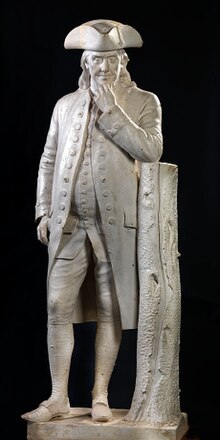
Moral character or character (derived from charaktêr) is an analysis of an individual's steady moral qualities. The concept of character can express a variety of attributes, including the presence or lack of virtues such as empathy, courage, fortitude, honesty, and loyalty, or of good behaviors or habits; these attributes are also a part of one's soft skills.
Moral character refers to a collection of qualities that differentiate one individual from another – although on a cultural level, the group of moral behaviors to which a social group adheres can be said to unite and define it culturally as distinct from others.
Psychologist Lawrence Pervin defines moral character as "a disposition to express behavior in consistent patterns of functions across a range of situations".[1] The philosopher Marie I. George refers to moral character as the "sum of one’s moral habits and dispositions".[2] Aristotle said, "we must take as a sign of states of character the pleasure or pain that ensues on acts."[3]: II.3
- ^ Pervin, Lawrence (1994). "A Critical Analysis of Current Trait Theory". Psychological Inquiry. 5 (2): 108. doi:10.1207/s15327965pli0502_1.
- ^ George, Marie I. (August 2017). "What moral character is and is not". The Linacre Quarterly. 84 (3): 261–274. doi:10.1080/00243639.2017.1338442. PMC 5592308. PMID 28912619.
- ^ Aristotle. Nicomachean Ethics.
